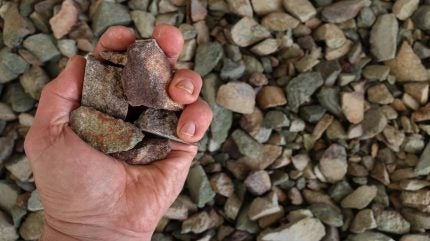
Rare Earths Americas (REA), a critical minerals company, has launched with a A$25m ($16m) private fundraiser to develop and explore “high-grade” heavy rare earth assets in the US and Brazil.
The company claims it is “well positioned” to strengthen crucial rare earth supply chains, which are essential for the global energy, defence and robotics sectors.

Discover B2B Marketing That Performs
Combine business intelligence and editorial excellence to reach engaged professionals across 36 leading media platforms.
The company’s asset portfolio involves various projects across the US and Brazil.
The Foothills project in the US features rare earth grades of up to 41.3% total rare earth oxides (TREO). This includes high concentrations of heavy rare earth elements, which are integral to producing high-performance magnets.
The project’s location on private land is said to offer advantages such as efficient logistics and “low-cost” power, along with a streamlined permitting process.
In Brazil, REA’s Alpha and Constellation Projects encompass more than one billion tonnes of high-grade ionic clay rare earth mineralisation.

US Tariffs are shifting - will you react or anticipate?
Don’t let policy changes catch you off guard. Stay proactive with real-time data and expert analysis.
By GlobalDataThese assets contain heavy rare earths like dysprosium and terbium, which are indispensable for manufacturing high-performance permanent magnets.
Additionally, the Homer Project in Brazil is exploring multiple carbonatite clusters with the potential to yield rare earth and niobium discoveries, situated in a region known for some of the world’s leading niobium mines.
REA’s launch is timely, coinciding with geopolitical and market dynamics that are disrupting traditional rare earth supply chains.
Rare Earths Americas CEO Donald Swartz said: “The rare earths market is undergoing a generational shift as the West races to secure its rare earths future. With grade and strategic geography on our side, we intend to advance our rare earths projects to support the long-term supply of critical materials essential to domestic innovation.”
Earlier this month, the US Government reportedly unveiled a proposal to establish a pricing support mechanism for US rare earths ventures, with the goal of increasing domestic output and reducing China’s control over the market.
This development came after a gathering on 24 July orchestrated by Peter Navarro, an advisor on trade for President Donald Trump, and David Copley, an official from the National Security Council.
The session included discussions with rare earths producers and major technology companies that depend on these essential minerals.





